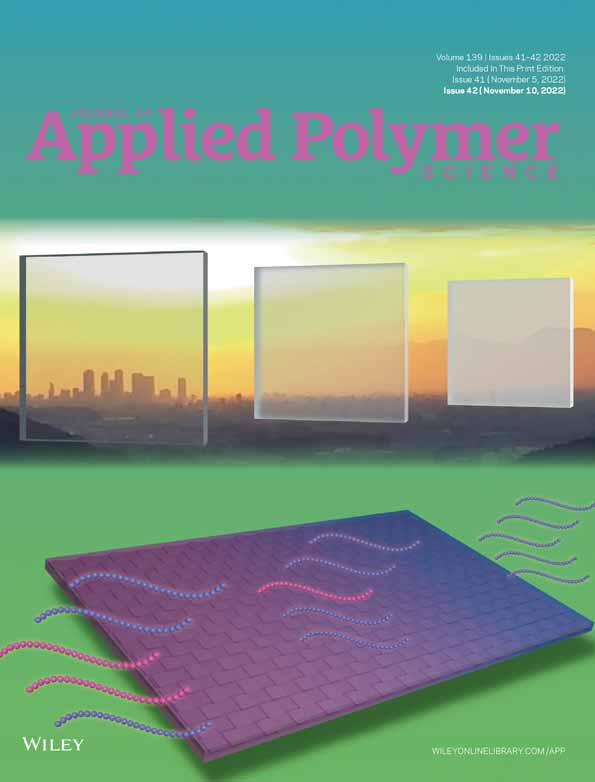Development of material extrusion 3D printing compatible tailorable thermoplastic elastomeric materials from acrylonitrile butadiene styrene and styrene-(ethylene-butylene)-styrene block copolymer blends
Funding information: IIT Delhi, Grant/Award Number: MI02379G
Abstract
Currently, material extrusion-based additive manufacturing (MEAM) is an advanced fabrication technique for polymeric materials. However, MEAM feedstocks typically rely on amorphous thermoplastics and hence it suffers from limitation of compatible polymers. The current work reports the manufacturing of MEAM compatible new thermoplastic elastomers (TPEs) from acrylonitrile butadiene styrene (ABS) and styrene-(ethylene-butylene)-styrene (SEBS) block copolymer blends which allow the designing of tailorable TPEs. Printability and mechanical properties of several ABS/SEBS (w/w) compositions were investigated. Interestingly, it was revealed that only 40 ABS/60 SEBS (w/w) blend possesses elastomeric properties in terms of strain at break (~550%) and tension set values (~10%). The effect of print layer thickness, orientation of printing, and infill degree on mechanical and TPE properties of the printed parts were studied theoretically by exploiting the Taguchi method. The infill degree has a significant influence on the mechanical performance whereas a slight effect was found by varying the layer thickness. Finally, the performance of the additive manufactured TPE were compared with conventional compression molded TPE specimens. As expected, lower values of ultimate tensile strength, Young's modulus, and strain at break of the additive manufactured sample were obtained as compared to the molded samples. However, no major variation could be found in the dynamic moduli, loss tangent, and absolute value of complex viscosity.
Open Research
DATA AVAILABILITY STATEMENT
The data that support the findings of this study are available from the corresponding author upon reasonable request.




